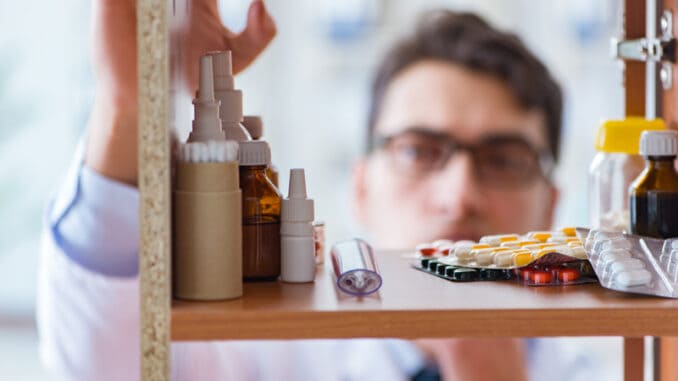
This mysterious nutrient is packing a powerful punch for men down there…

Story-At-a-Glance
Matt Cook here, and most men have never heard of inosine.
This one special nutrient can even protect men from certain chronic lifelong diseases.
Discover what getting more inosine can do for you today…
—-Important Message From Matt For Men Who Want to Last Longer—-
Men who do this one thing during intercourse naturally last longer

You are about to discover the strange story of how I figured out the secret to go from lasting less than 10 seconds in bed to over 30 minutes.
What I reveal in this video is not a trick, con or scam.
It’s been successfully taught to thousands of other men.
You’ll discover one special thing to do during sex that will make you last longer in bed naturally.
———-
Why you should be supplementing with inosine if you’re a man
Inosine is a nutrient found in a number of different foods.
Large amounts of inosine are found in brewer’s yeast, liver, and kidney.
Purified inosine supplements have been around since the 1970s.
It has been investigated for potentially accelerating recovery in spinal-cord injury and stroke.
It’s also a very promising treatment for multiple sclerosis. In fact, there have been quite a lot of positive studies on inosine in recent years.
A number of different labs have investigated the role of inosine in protection against diabetes.
For example, one research project found that inosine may protect from both type I and type II diabetes.

These animal experiments were carried out at Inotek Corp, Beverly, MA. The findings were published in the journal Molecular Medicine.
We have known about the existence of inosine for a long time.
But for most of that time, researchers have dismissed it as a useless compound.
“Inosine, a naturally occurring purine, was long considered to be an inactive metabolite of adenosine.”
Opinions about inosine are changing — largely due to a number of very interesting studies.
“Recently inosine has been shown to be an immunomodulator and anti-inflammatory agent.”
This type of research has large implications for diabetes.
Type I diabetes is considered an autoimmune disease and so could be affected by “immunomodulatory agents” like inosine.
Type II diabetes has inflammation at its core — so the anti-inflammatory effects of inosine can be incredibly beneficial here too.
Researchers at Inotek decided to investigate the possible role of inosine in protection against both forms of diabetes.
“The aim of this study was to determine whether inosine influences anti-inflammatory effects and affects the development of type I diabetes.”
They carried out a number of experiments in a couple of different types of mice.
Some experiments were carried out on mice with a genetic predisposition to develop the autoimmune disease type I diabetes.
Subgroups of these mice were given different doses of inosine to see if there was any effect on the risk of developing the disease.
Other mice were given a chemical compound called streptozotocin — which causes type II diabetes.
These mice are also split into groups, some of which were given inosine.
Other mice had grafts performed on their pancreas — the scientists looked at how those grafts were received by the body with or without supplemental inosine.
The study showed that inosine could prevent BOTH types of diabetes.
“Inosine reduced the incidence of diabetes in both streptozotocin induced type II diabetes and spontaneous type I diabetes.”
Both of these animal models are pretty close to real world diabetes. So these are significant results.
The study also showed that inosine helped with the survival and acceptance of surgical grafts onto the pancreas — the organ most affected by diabetes.
“Inosine prolonged pancreatic islet graft survival and increased the number of surviving beta cells.”
Beta cells are the cells in the pancreas which produce insulin — a hormone which helps to regulate blood sugar.
It seems that inosine has numerous benefits which could benefit people at risk of both type I and type II diabetes.
“Inosine protects against both the development of diabetes and against the rejection of transplanted islets. It exerts anti-inflammatory effects in the pancreas, which is its likely mode of action.”
The researchers recommended trialling the use of this supplement in people with type I diabetes and those undergoing pancreatic transplants.
“Inosine should be considered as a potential preventative therapy in humans who are susceptible to developing type I diabetes and as an anti-rejection therapy for islet transplant recipients.”
This is on top of its anti-inflammatory effects which this study shows may be beneficial in type II diabetes.
—-Important Message for Men With Diabetes or Prediabetes—-
My profound and shocking blood sugar breakthrough for men
The sad truth is that most of what men have been told about diabetes is 100% wrong.
The diabetes industry is huge and Big Pharma is very interested in selling treatments and insulin and not very interested in making men healthy.
Most men start out with what they call prediabetes, and oftentimes they are prescribed some dietary interventions and the treatment Metformin.
But what most men still don’t know is that Metformin also raises inflammatory lactate levels in the bloodstream…
And they don’t know this because nobody is talking about it.
Yet lactate is one of the worst things that you can increase in your bloodstream.
And diabetics are prone to higher levels of lactate already.
Too much lactate causes retinal problems, vision problems…
It’s why so many diabetic go blind or end up with neuropathy and numbness — and eventually poor circulation.
Too much lactate can shut the kidneys down and make you end up needing dialysis.
It can cause you to lose your toes and end up in a wheelchair.
All from lactate.
And yet, Metformin, one of the most popular drugs for diabetes, raises lactate.
That’s just one example of diabetes treatments gone wrong, and I can show you countless others.
If you want to fix diabetes or prediabetes without Big Pharma treatments, watch this video now
———-

Inosine protects against the development of diabetes in multiple-low-dose streptozotocin and nonobese diabetic mouse models of type 1 diabetes
https://pubmed.ncbi.nlm.nih.gov/12865945/
